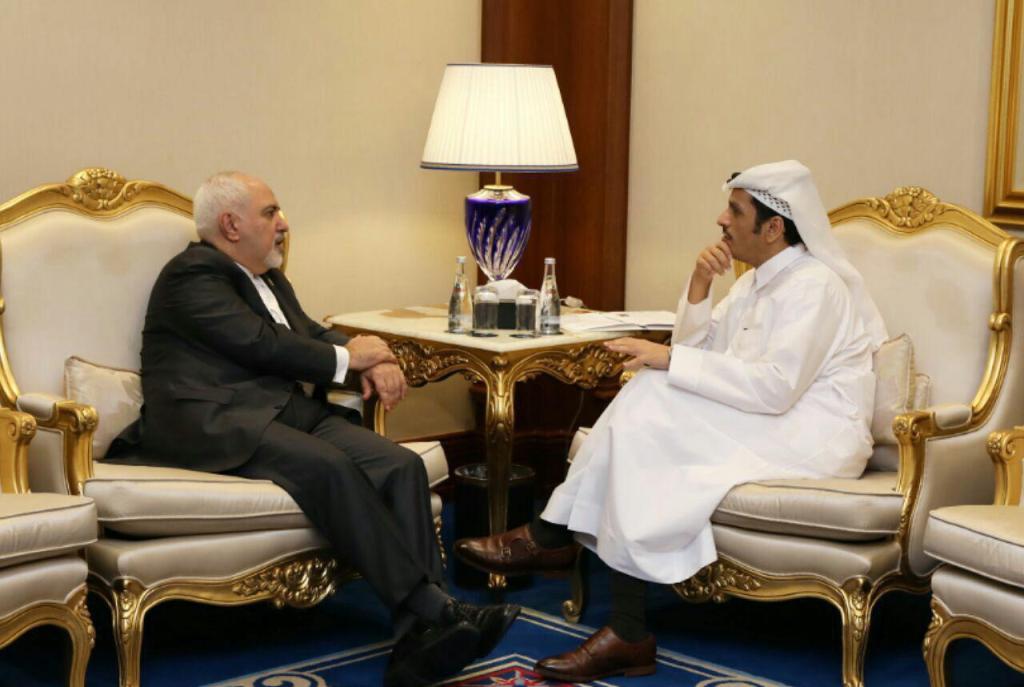Alwaght- Iran's Foreign Minister welcomed his Qatari counterpart’s call on the Persian Gulf Arab countries to launch negotiations with Iran, saying the Islamic Republic has been demanding neighborly cooperation towards establishing a strong West Asia.
“Iran welcomes my brother FM @MBA_AlThani_’s call for inclusive dialogue in our region,” Mohammad Javad Zarif wrote in a post published on his official Twitter page late on Tuesday.
“As we have consistently emphasized, the solution to our challenges lies in collaboration to jointly form a ‘strong region’: peaceful, stable, prosperous & free from global or regional hegemony,” the Iranian top diplomat added.
On Monday, Qatar called on the Persian Gulf’s Arab states to seize on the momentum of reconciliation drive in the region and patch up their differences with Iran.
In an interview with Bloomberg television news network, Qatari Foreign Minister Sheikh Mohammed bin Abdulrahman Al Thani expressed hope that a summit between leaders of the six-member Persian Gulf Cooperation Council (GCC) and Iran would happen.
“We are hopeful that this [summit] would happen and we still believe that this should happen. And I think this is also a desire that being shared among the other GCC countries. I just mentioned to you that there is a difference between the countries on the way how to approach such a dialogue. Also from the Iranian side. They have expressed their willingness several times to engage with the GCC countries,” the Qatari foreign minister said.
He said the time should come when the Persian Gulf’s Arab states will sit at the table with Iran and reach a common understanding.
“We have to live with each other. We cannot change geography. Iran cannot move the GCC away from its neighborhood and the GCC cannot move Iran from the neighborhood,” Al Thani noted.
The comments came after an Arab quartet of Saudi Arabia, the United Arab Emirates, Bahrain and Egypt mended ties with Qatar earlier this month following a three-year-and-half dispute.
The Saudi-led quartet had severed diplomatic ties with Qatar and imposed a total blockade on the tiny Persian Gulf nation in June 2017. The four countries closed their airspace, land, and sea routes to Qatari planes, cars, and vessels.
Kuwait studiously worked to mediate the crisis for years, and sought to reconcile the opposing sides. It succeeded in doing so last December.
Qatar now seems to be trying to foster dialogue between Iran and Persian Gulf Arab states.
Tehran has on numerous occasions announced its readiness to hold talks with its neighbors directly. It has already put forward an initiative called the Hormuz Peace Endeavor (HOPE) to promote security in the Persian Gulf and facilitate such neighborly negotiations.
“Security is contingent on a reliance on our own peoples and cooperation with our own neighbors. We need collective efforts by regional countries to establish inclusive dialogue and security networking in this region,” Zarif told a virtual debate of the UN Security Council on October 20, 2020.
“Otherwise, we will all be engulfed in turmoil for generations to come,” he added, warning that turmoil in the region “will be everyone’s turmoil.”



























